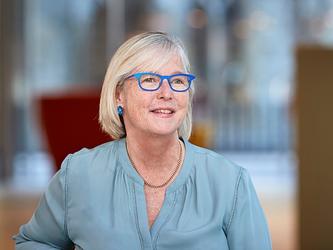Marketing must evolve or face crisis, IPA panel hears
Speaking in a panel session about the future of work at the conference on Wednesday, Richard Jolly, adjunct professor of organisational behaviour at London Business School, said that many senior marketers lacked the right skills for a more digital world.
“The people who are senior in the marketing today grew up in a world that is very different to what it is now,” Jolly said.
“The world of Mad Men is more similar to the world senior marketers grew up in than the world of digital transformation. There’s a crisis in marketing is because marketers have to be agile to fundamentally shift what marketing fundamentally means.”
Jolly called for a greater focus on creativity as a means to address a “crisis in marketing” and for the industry to work harder to define its purpose in a business world that is more sceptical over marketing’s value.
“Agencies have lost confidence in what they are really providing to clients,” he explained. “We have lost confidence around creativity, and the challenge is how to get back this ‘mojo’ and what we can uniquely provide.”
Jolly added: “If we are not careful, the agency world can be very reactive, and looking at what we can do to keep ourselves busy and make payroll.
“Creativity is a collaborative act. The challenge for agencies is how to allow time for genuine creativity.”
Tom Pepper, senior director, Europe, Middle East and Africa and Latin America, at LinkedIn, said there had been an acceleration in digital jobs and the digital skills required for these roles.
He added: “It will be important to capture the benefit that flexible working brings. There’s an opportunity with flexible work to incorporate a new skills-based hiring approach, which gives a new way to take a step forward when we have perhaps taken a couple of steps back on things like gender equality in the workplace.”
Also speaking on the panel, Jane Asscher, chief executive and founding partner at 23Red, said that the debate over how much work life should be split between the home and the office was a distraction from more pressing issues in the industry.
“I fear that the home versus office debate is not the debate we should be having, and as industry leaders there are some real challenges, questions and tensions we need to address,” she explained.
“How do we preserve our creative culture, which is under threat? It is critical for agency differentiation and creativity and innovation.
“While we have witnessed increased productivity by working at home, I question whether we are actually seeing increased efficiency and effectiveness – that seems to be waning for me.”
Dr Bill Mitchell, clinical psychologist at The Mitchell Practice, said that changes to models of working needed to be embraced by a company’s leadership if it was to be adopted by more junior staff members.
“Leaders have to lead on this,” he said. “If you put out a statement saying you are embracing a hybrid model, but your leaders are in the office five day a week, 11 hours a day, that message will become very muddled. Leaders have a huge responsibility to get this right.”

We hope you enjoyed this article.
Research Live is published by MRS.
The Market Research Society (MRS) exists to promote and protect the research sector, showcasing how research delivers impact for businesses and government.
Members of MRS enjoy many benefits including tailoured policy guidance, discounts on training and conferences, and access to member-only content.
For example, there's an archive of winning case studies from over a decade of MRS Awards.
Find out more about the benefits of joining MRS here.














0 Comments